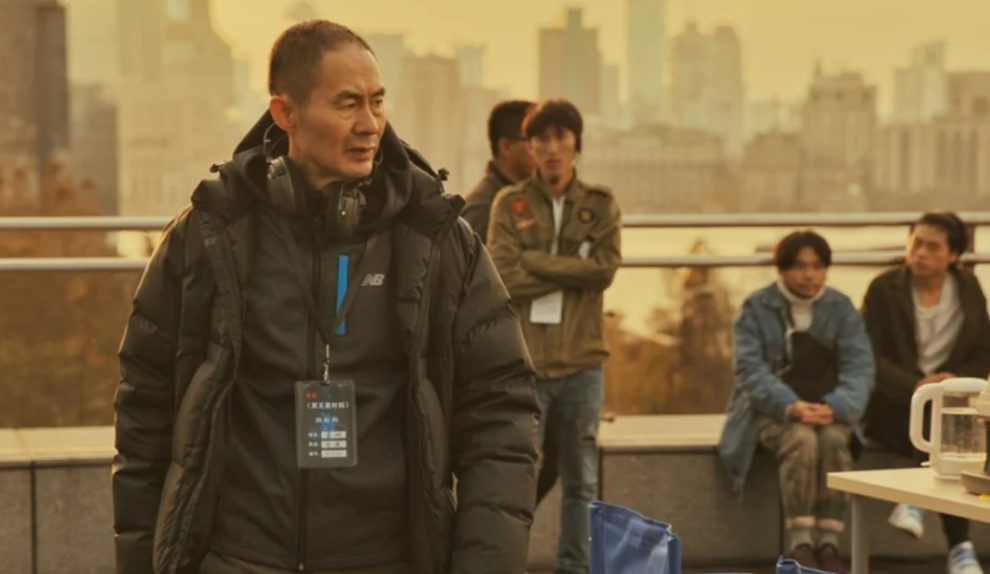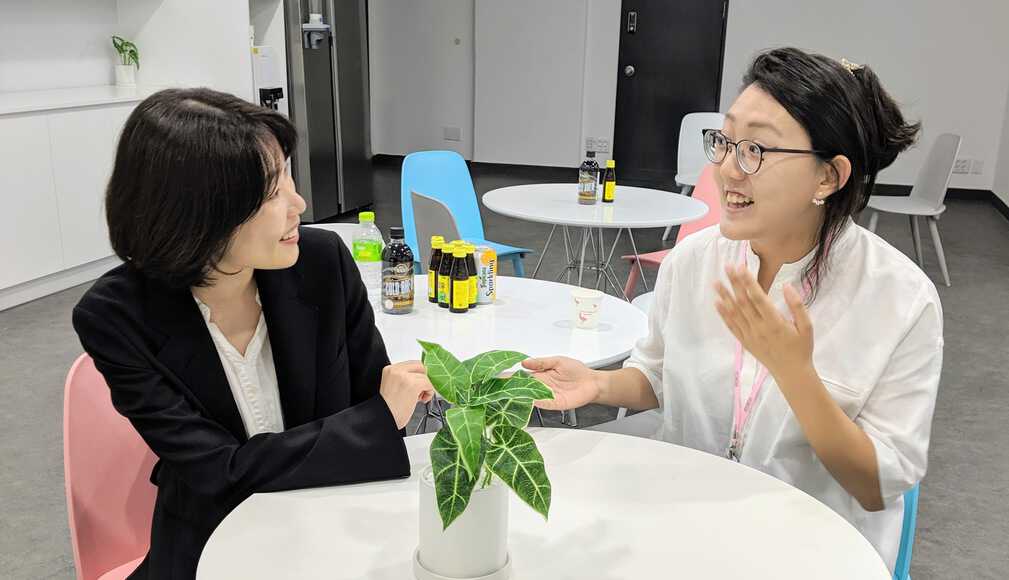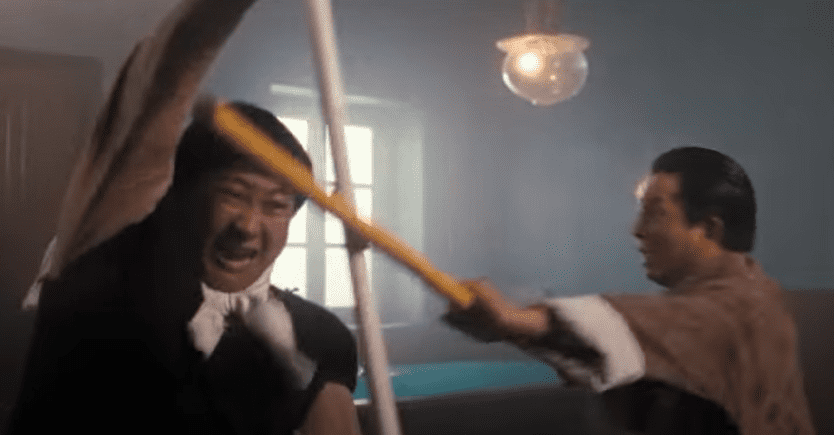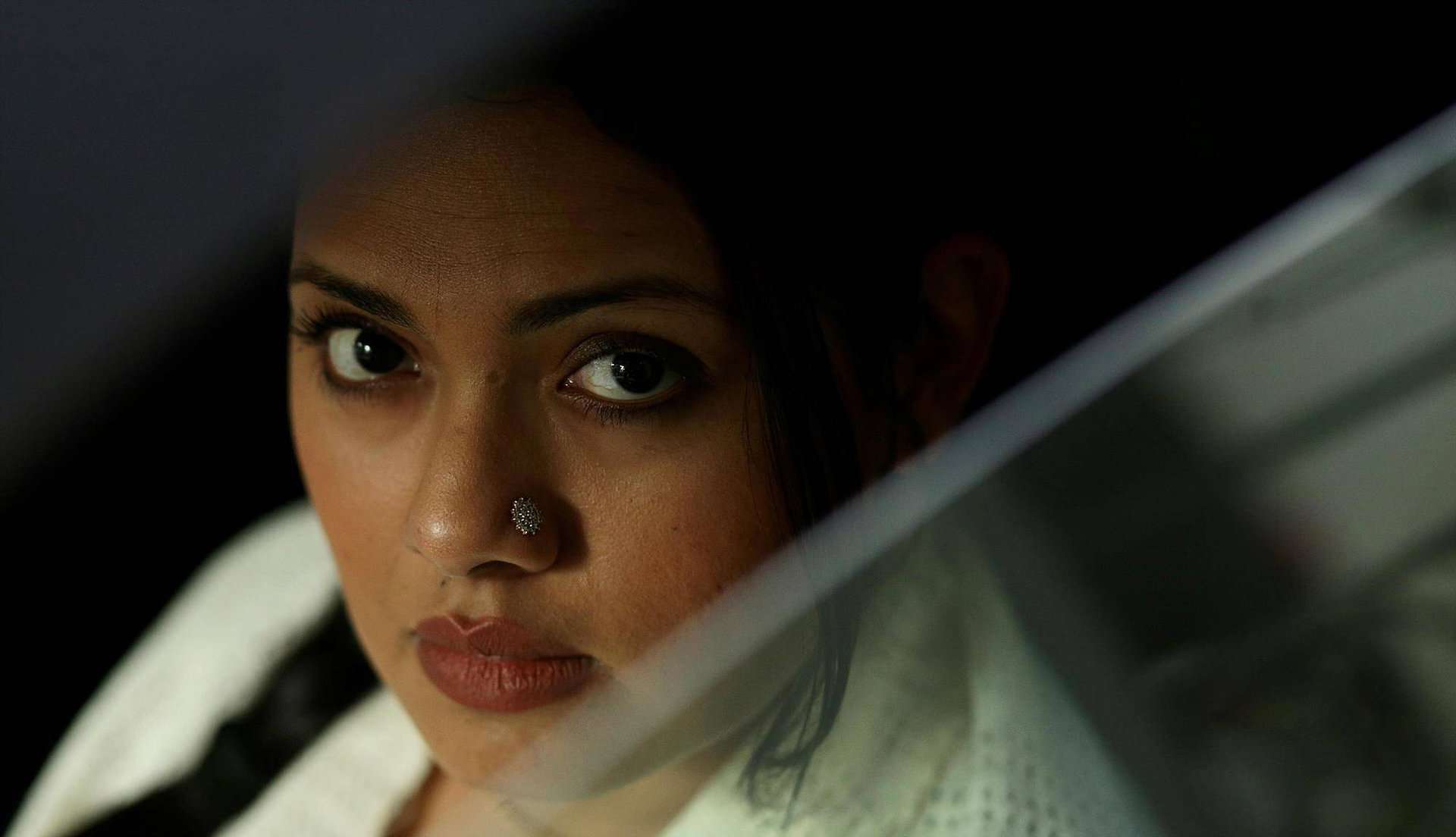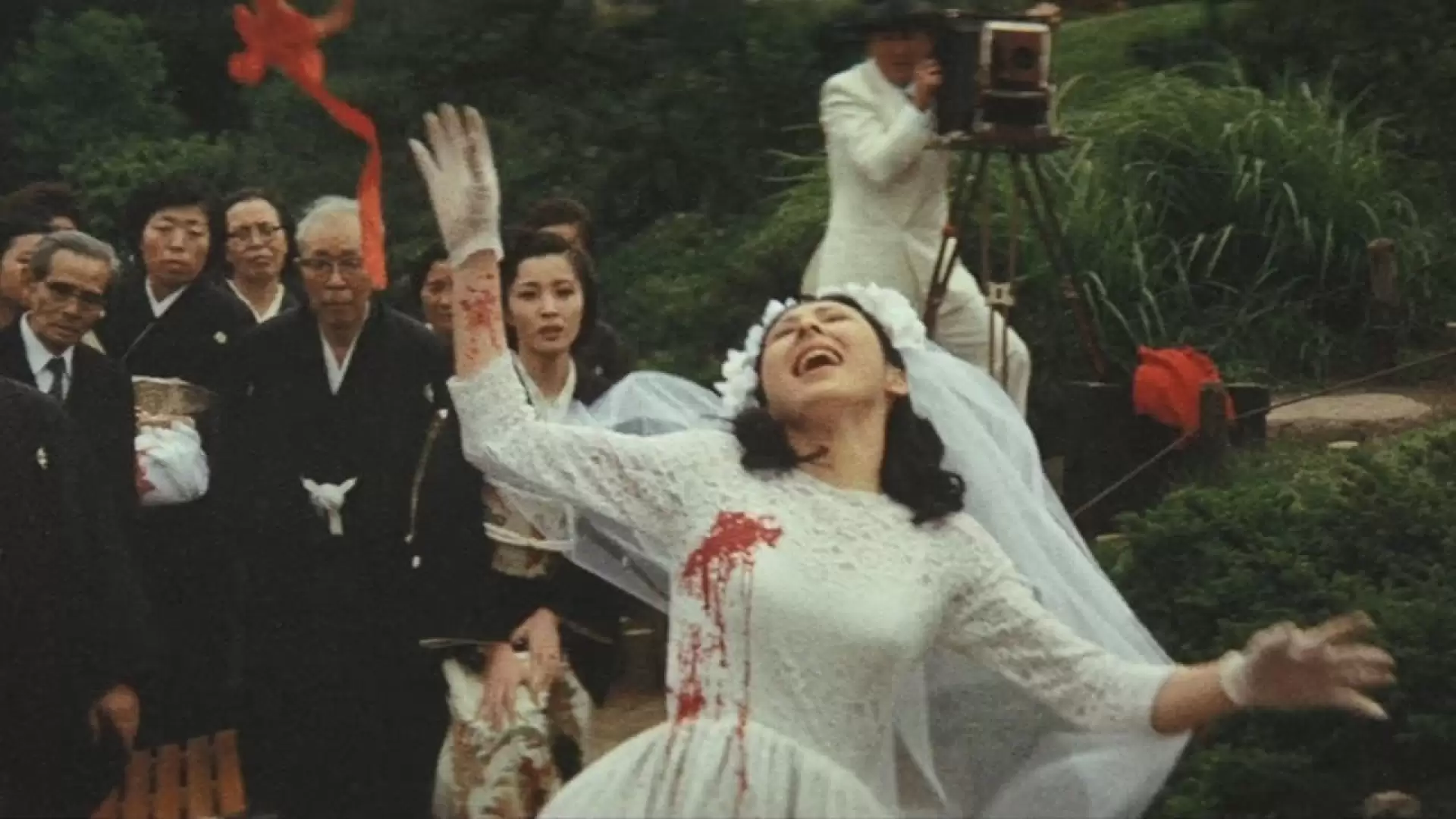Ming Zhang (04.06.1961) grew up in Wushan, formerly a part of Sichuan province, now part of Chongqing. Graduated from the fine arts department of Southwest University. In 1988, he was accepted in the Directing Department of the Beijing Film Academy, and he completed his studies there in 1991. In 1996 he made his debut as film director with “In Expectation” (1996), which was premiered in the Berlin Film Festival and won prizes in several international film festivals. His filmography includes “Weekend Plot” (2001), “Before Born” (2006), “China Affair” (2013), “The Pluto Moment” (2018). Currently, Ming Zhang is an established director, writer and professor of the Department of Directing in Beijing Film Academy.
His latest work “Hot Soup”, which had the World Premiere at 2020 Warsaw Film Festival International Competition section, and the Asian Premiere at Hai Nan International Film Festival, has been recently added to the portfolio of Fortissimo Films. On this occasion, we speak with director Ming about the team-work behind the film script, how the locations shape the identities of the characters, the challenges in casting the four protagonists, and many more topics.
“Hot Soup” is distributed by Fortissimo Films

Four storylines and a team of four scriptwriters. It could have been a recipe for disaster! How did you organise the work to obtain such a fluid result?
The scriptwriting work of “Hot Soup” was phased. Everyone focused on different parts of work at different times. The idea of the story and the first draft were discussed among a group of people. At that time, as a distinguished professor of the School of Communication of East China Normal University, I was leading students and teachers to study film and I thought there wouldn't have been more effective way than having them work with me for the film. Therefore, when I started to work on this movie, I shared it with them. They started to participate in the discussion, they collected materials and related information, which laid the script's foundation. It took us a month or so to get the first draft. Unfortunately, this version did not pass the censorship by the Film Bureau. Therefore, we quickly changed the script's concept and plot, retained the primary character relationships, re-wrote a draft, and finally passed the censor review. Later, the young screenwriter Gong Yuxi joined in and made changes to the script, from the women and robots' perspective. After that, Zhu Wen joined in and adjusted and polished some structure and dialogue. He deleted almost eight or nine thousand words, and finally, the length of the script finalised at about 25,000 words.
Fertility, masculinity, motherhood … are some faces of the big “elephant in the room” in your film. Can you elaborate on this and how you link them to the pursue of happiness?
My initial idea is very simple. People in any country and places face the fundamental matter of women giving birth, and men reproducing the next generation. Besides, the topic of being a mother of natural humans or a mother of “robots” is not far away in our time. These things are obviously related to our quality of life and the experience of happiness. In the process, we also seek to achieve happiness, although this is often in vain. Therefore, Professor Jin said in the film: What is happiness? Happiness is nothing more than being relieved from pain. That's it.
Being a professor and teacher yourself, how much of your personal experience and traits are in the character of Professor Jin?
In fact, the Professor of the film is not similar to me, in any way. The role of Professor in the film is my description of a more quintessential Chinese professor. As for myself, I am a relatively rare kind of university teacher, not like a professor at all. I have experienced many times and in many occasions that no one has ever asked me about my profession, including the police. Most people feel that they are not sure what I do. If I have any particular concern about the Professor's role in the film, it must be the awkward relationship between the senior man and the female student. This is the key for understanding the character of Professor Jin.
Could you tell us something about the four locations? So enclosed and yet placed within a vast landscape.
In the early stage of location scouting, I went with the staff and students to many places. Although we set the story's location to be in Shanghai, aside from the apartment that was eventually shot in Shanghai, the rest weren't. The night club and Hot Spring scenes were shot in cities of other provinces. The taxi scenes were shot entirely in the studio, with special effects on green screen. We finally found these locations after a few challenging setbacks. They are well consistent with my positioning of the environment required for the film. These scenes provide the identity of the protagonist of each story and the scope of their activities. They are not only the connection between the characters and the society but they also form the style of film structure.
Do you have a personal favourite out of the four storylines? Or, on the contrary, do you feel any of them is less assertive or developed of the others?
I regard this film as a transitional period in my entire creative process. A film critic asked me, where the transition to? I said it was a transition period that I do not know the “where to”. However, for this film maybe I wanted to describe people and things that I am not familiar with. The professor's role seems the same as what I do at the university, but his economic subjects are new to me. The other disciplines, such as artificial intelligence engineers, online ride-hailing drivers, and nightclub underworld bosses, are the professions I am not familiar with. For now, my preference, of course, is the combination of a professor and the student. I found it most interesting, while also most regrettable.
Can you tell us about the criteria and the challenges of casting four distinct leading ladies that might also be one?
I was uncertain if finding two actresses to play the four storylines, female student and Tang Tang played by the same actress, female passenger and club owner's daughter played by another actress. Or finding four actresses to play each of them. I was still hesitating after we found all the actresses. Eventually, I decided to let four actresses play each role. Since I didn't want to decline the actors who passed the audition and tell them “I don't need you anymore, you may go”. I also thought about having four actresses in a similar age, with similar temperament and appearances. This thought dissipated though, as I found it unnecessary because the script has its logic. Four people can seem as one person but can also appear to be four different people. Based on this assumption, the scope of my requirements for actresses had expanded. What may not be quite right is that the four actresses have their own characteristics and styles, which are not similar. If there is a problem with the performance, then, of course, the director's criteria for selecting the heroine deviates.
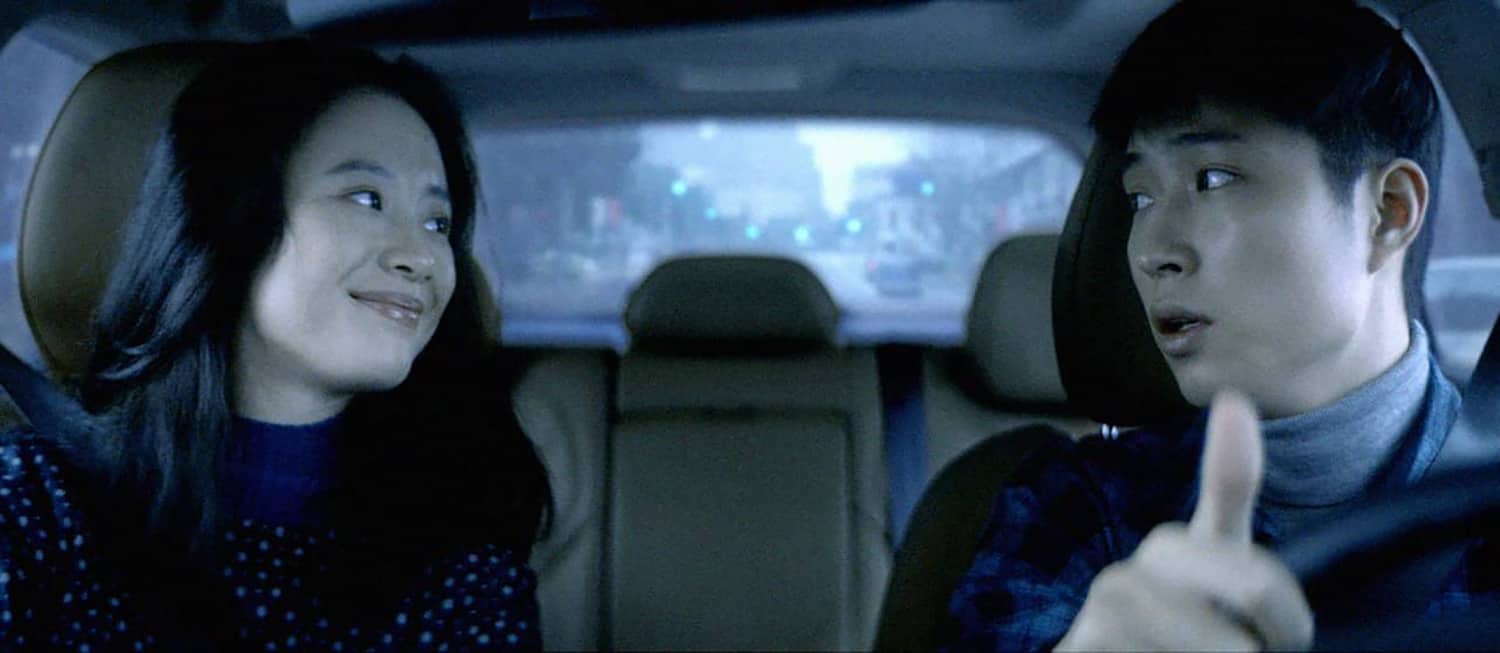
Watching “Hot Soup” we can sense different genre-atmospheres (sci-fi, gangster movie, etc.). Can you talk about this decision?
This film is certainly not trying to mix different genres altogether, but China's social background determines the characters. I think these characters in contemporary China constitute the fundamental aspect of our society. On the one hand, the female student, the housewife (no matter if married or not), a passenger who want to emigrate, a night club owner's daughter; on the other hand, the programmer, economics professor, online ride-hailing driver, and nightclub boss. These characters include the most representative citizens in contemporary China because the characters' identity and work derive from their living environment, which affects the film's overall atmosphere.
Is your personal idea of happiness to be found closer to the sea of big data or to the sticky rice ball soup?
This is quite obvious, and it's even more prominent in the comparison of big data.
In “The Pluto Moment” you have managed to shoot a film about films without becoming meta. How did you manage that and was that one of your purposes?
“The Pluto Moment” can be regarded as my staged work. It summarizes the state of my previous works. From this perspective, it expresses a general sentiment among Chinese independent filmmakers. Moreover, it also attempts to explore the fundamental issues of the film itself, the problems between film and people, and the problems between people. My ambition and my intents were to expand this in the film ” The Pluto Moment”. Did I achieve it? It's hard to say. I think there is still an expressive weakness.

Can you give us some more details about the whole concept of the legend of “The tale of Darkness”?
Regarding the “The tale of Darkness”, I used DV to shoot a movie called “The Bride” in 2008, while China had the Olympic Games in that year. The story is about four men conspiring to let a country girl die. In fact, I regard “The Bride” and “The Pluto Moment” as two of mi “Darkness Trilogy”. There are similar funerals in both films, where singers are performing a long funeral song, which is called “Epic of Darkness”.
How close to the way the independent movie industry are the events depicted on screen?
This film's plot may not have much to do with independent films or let's say it may not matter. While we mention the film industry, China's independent film is far from being an industry, it may be lingering on the periphery of the industry. In China, I think it is more accurate to call the so-called “independent films” as “low-budget films” or “small production films”. They have various appearances, but they are equally struggling to survive in Chinese film ecology.
Have you got a new project in the pipeline?
Recently, I have been looking for distribution opportunities in China for “Hot Soup” and I have talked with many distribution companies. Most of the companies told us that this film's box office would be around 5 million RMB. If the box office is such, the return on investment is approximately 1.5 million RMB, which might not even recoup the distribution expenses, don't even talk about the production budget! In recent years, the Chinese box office for a popular film can reach more than 1 billion RMB. Hence, even though I have plans for at least two new projects, they are uncertain, if I cannot redeem my previous project's expenses.


